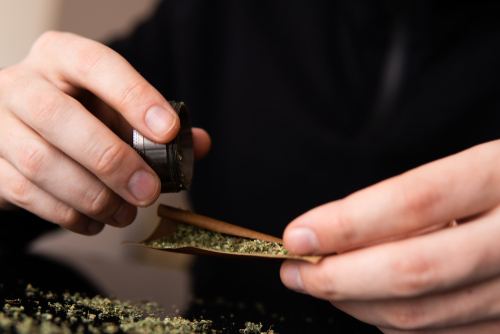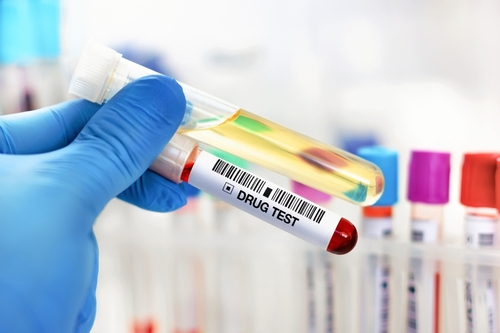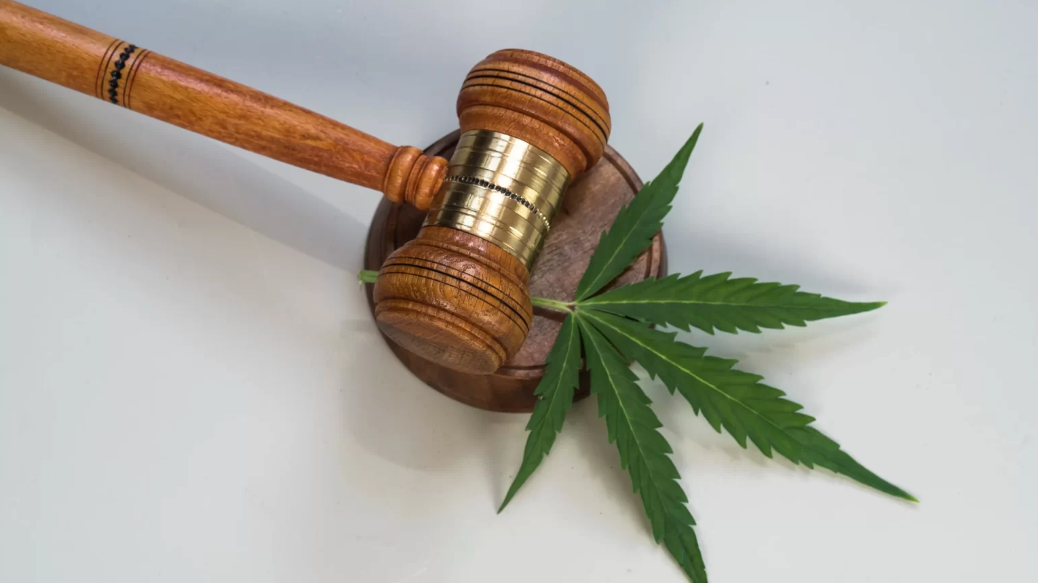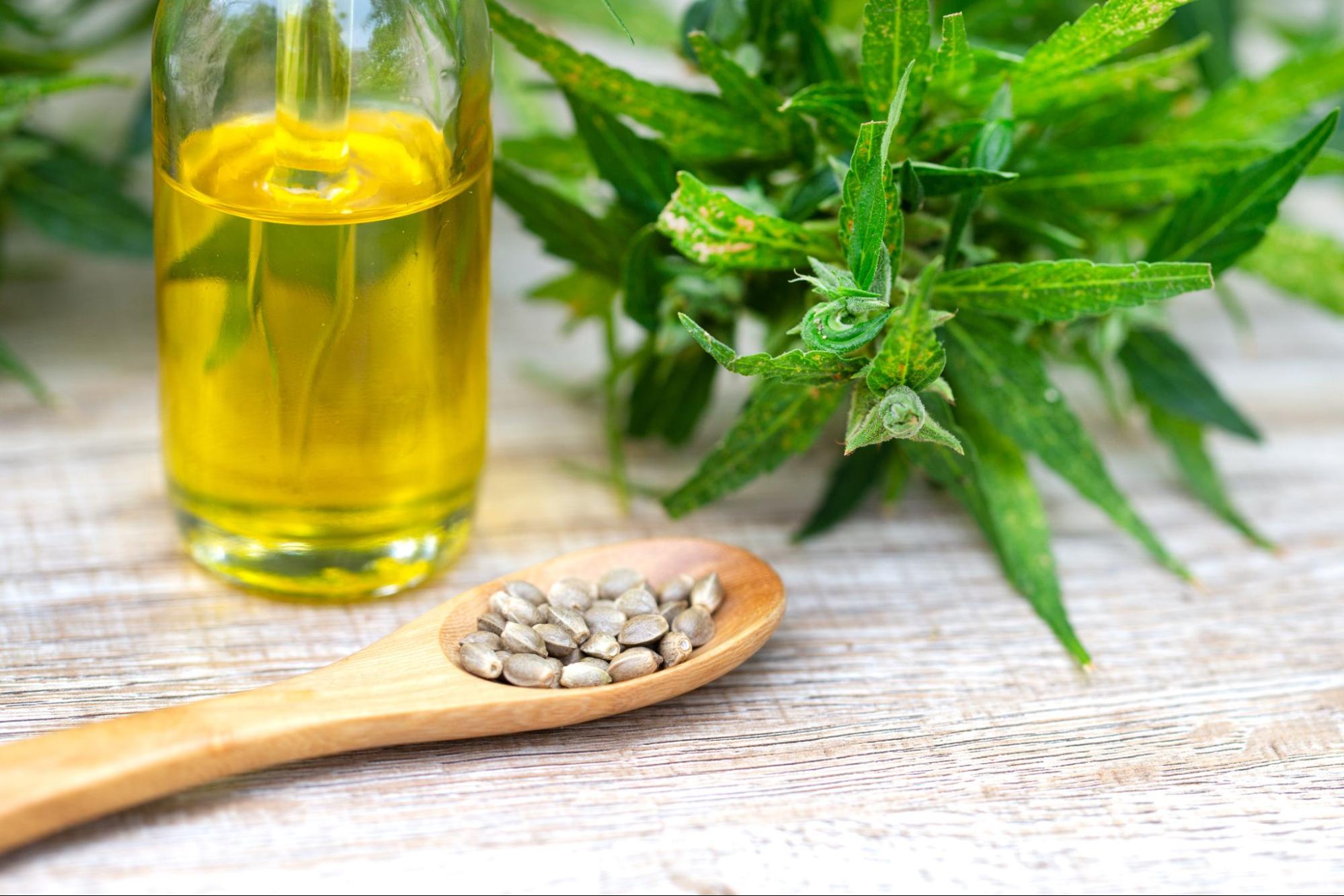THCa vs Delta-8: All You Need to Know

THCa vs delta-8: what's the difference, and why should you care? In many cases, if you ask even the most battle-hardened of cannabis users to name all the new and exciting compounds and substances within the cannabis family, they will have a difficult time naming them all.
For example, what are THCa and THC, and where do all the numbers come into play? You will find that most people know about THC as a compound, and many know about THCa; some even know that the two are related. However, once you start splitting those hairs, you begin to lose a good number.
THC, for instance, is a name that is generally used to describe both delta-8 and delta-9 cannabis compounds. They are both called THC, and they are both deltas, but there is a difference between 8 and 9.
THCa, on the other hand, is completely different from THC and the deltas. THCa is the precursor to THC, and when you introduce heat to THCa, you get THC, which is the psychoactive compound of cannabis. But how do you get delta-8 and 9?
Let's take a quick look at these different compounds and how they affect your body. Once you know exactly how they are formed and what they bring to the table, you will be better placed to decide who wins in your book as far as the THCa vs delta-8 debate is concerned.
A Closer Look at THCa
The fact that THCa (tetrahydrocannabinolic acid) is the precursor to THC (tetrahydrocannabinol), both 8 and 9, means that it needs to be discussed and understood first. THCa is an acidic compound that naturally occurs in hemp or cannabis plants.
While it's therapeutic, THCa doesn't contain the psychoactive properties that cause euphoria or intoxication when you take hemp or cannabis. For that, you would have to introduce heat to THCa through a process called decarboxylation, which will give you THC, which is the psychoactive compound in hemp and cannabis.
While a lot more research is certainly needed, studies show that THCa has great potential as a therapeutic compound. Some of its benefits include anti-inflammatory, anti-nausea, and neuroprotective properties that can help relieve the pain and discomfort associated with certain degenerative diseases, such as cancer. In fact, most people who specifically consume THCa do so for its potential health benefits.
Effects of THCa on the Human Body
Being a naturally occurring non-psychoactive compound found in hemp and cannabis plants, THCa is not like THC delta-8 in that it does not give you that feeling of euphoria or high. It does, however, have several associated health benefits.
Some of the most common therapeutic effects of THCa on the human body include:
- Anti-inflammatory properties: Research shows that THCa does have some anti-inflammatory properties that can help relieve the pain associated with conditions such as multiple sclerosis and arthritis.
- Neuroprotective properties: Some studies suggest that THCa has neuroprotective properties that may play a crucial role in alleviating the pain associated with neurological disorders such as ALS.
- Anti-nausea properties: There is research to suggest that THCa has some anti-nausea properties that could make it extremely useful as far as the reduction of chemotherapy-induced nausea is concerned.
It should, however, be noted that further research into this field is necessary to determine just how effective THCa is as a therapeutic remedy for any of these conditions. Further studies should help determine which potency levels and dosages are necessary for individuals to feel and benefit from these therapeutic properties.

The Benefits of THCa
Apart from potentially being a useful therapeutic remedy, there are several other benefits of THCa as a compound in the cannabis family. For one thing, THCa is very versatile and can be consumed in a number of different ways, including being added to smoothies, juicing raw cannabis, and using it as part of the ingredients for edibles.
Another major advantage of THCa is that it is much easier to access than THC. Because it's a naturally occurring compound that can be found in hemp and cannabis plants, THCa is legal. This holds as long as the THCa in question contains less than 0.3% THC and is derived from a hemp plant. This gives people who live in states where THC isn't legal a loophole to still possess, use, and benefit from the therapeutic properties of THCa.
In fact, these people can simply introduce some heat to their legally obtained THCa to get the same euphoric effects of cannabis or hemp from the resulting THC.
THCa Side Effects
While THCa isn't a psychoactive compound like THC, and consuming it may not produce the same euphoric results, it is still a cannabis or hemp compound and the precursor to THC. It's, therefore, logical to assume that some of the same residual side effects may occur.
With that in mind, here are some of the most common side effects of consuming THCa.
- It may cause digestive issues like vomiting, nausea, or even diarrhea in some people.
- There's a real risk of drug interaction, especially if you are taking long-term prescription medication. As such, it's important to talk to your doctor before introducing THCa into your system.
- THCa can also cause potential allergic reactions, albeit in rare cases.
It's important to note that, just like with its potential therapeutic properties and benefits, some more research is required to fully understand the potential side effects of THCa on the human body, especially when it comes to prolonged use.
What Is Delta-8?
When you introduce heat to THCa, you get THC through a process called decarboxylation. The THC you get is called delta-9 THC, which is a well-known psychoactive compound in hemp and cannabis. Delta-8 is a derivative of delta-9 THC, which makes it a minor cannabinoid.
Its chemical composition is slightly different from delta-9, thanks to a process that involves molecular rearrangement. Delta-8 has become quite popular in recent years, especially since it can be considered a legal alternative to THC in many states.
Compared to delta-9, delta-8 is milder. It has been known to give users a more relaxed euphoria or intoxication than delta-9 THC. It also presents fewer feelings of paranoia or anxiety when used correctly. In fact, some users have reported feeling a bit more clear-headed and focused when using delta-8. Some even find it more relaxing and a bit more of a sedative.
Since delta-8 is a THC derivative, the best way to consume it often involves vaping or smoking it. You can, however, use other options such as tinctures, edibles, and other THC-related products.
Unlike THCa, delta-8 isn't a naturally occurring compound in hemp or cannabis. It is, however, a derivative of both THCa and THC (delta-9). To get delta-8 from delta-9, chemical conversion must occur.
In this process, delta-9 THC is selectively isolated from the cannabis extract and exposed to pressure, heat, or other chemical agents, depending on the manufacturer. This process alters the delta-9 molecular structure to give you delta-8 THC.
It should be noted that even though delta-8 is legal in many states, it is still a controlled substance in a few. You are, therefore, advised to stay current with the legal situation regarding the possession and use of delta-8 where you live. It's also advisable to use it as directed and to avoid abusing delta-8 to minimize any possible side effects that may occur.
The Effects of Delta-8 on the Human Body
Even though delta-8 is known to produce a much milder effect when compared to the primary psychoactive compound in cannabis (delta-9 THC), its effects still vary depending on a few factors, such as the individual using it, the manner in which it is used, and the dosage. With that in mind, here are some of the most common delta-8 effects on the human body.
Mild Euphoria
Delta-8 is very similar to delta-9 THC; as such, there are going to be some overlapping effects. Mild euphoria is one such effect. As a psychoactive compound in and of itself, delta-8 can cause feelings of intoxication, albeit milder than what you would get when using delta-9 THC.
Increased Appetite
Delta-8 has also been known to increase one's appetite or give them "the munchies."
Increased Creativity
Some users may experience increased creativity and productivity as delta-8 can bring mental clarity as well as focus.
It should be noted that these effects vary from individual to individual. Some people may experience the negative side effects of delta-8, such as red eyes, cottonmouth, and impaired movement. This often happens when you consume the product in large quantities or dosages.
The trick is to take it slowly and introduce your body to a professionally produced dose of delta-8 without overdoing it.
The Benefits of Delta-8
Unlike its close counterpart, delta-9 THC, delta-8 is widely accepted and legal in most states, which makes it easily accessible. As such, it's much easier to experiment with and experience the positive effects of delta-8 THC than it is of delta-9 THC in most states.
Another benefit of delta-8 is how versatile it can be. You can take delta-8 in a variety of ways, including smoking, vaping, tinctures, and even edibles. The best part is that thanks to its milder effects and intensity, delta-8 is something that even people who have never used cannabis before can try out before they get their sea legs.
THCa vs. delta-8, which one is best for you? This really depends on what you want to achieve. If you are looking for something that will give you a buzz but not one that is as intense as delta-9 THC, then delta-8 is what you want. It's milder and offers some wonderful benefits, such as mental clarity and increased creativity, while also giving you that euphoric feeling that is closely associated with cannabis.
However, if you aren't after a buzz but need something that you can use to alleviate pain and nausea, then you should try THCa. You should remember that every single one of these compounds reacts differently in each individual, and they should each be used with caution.



